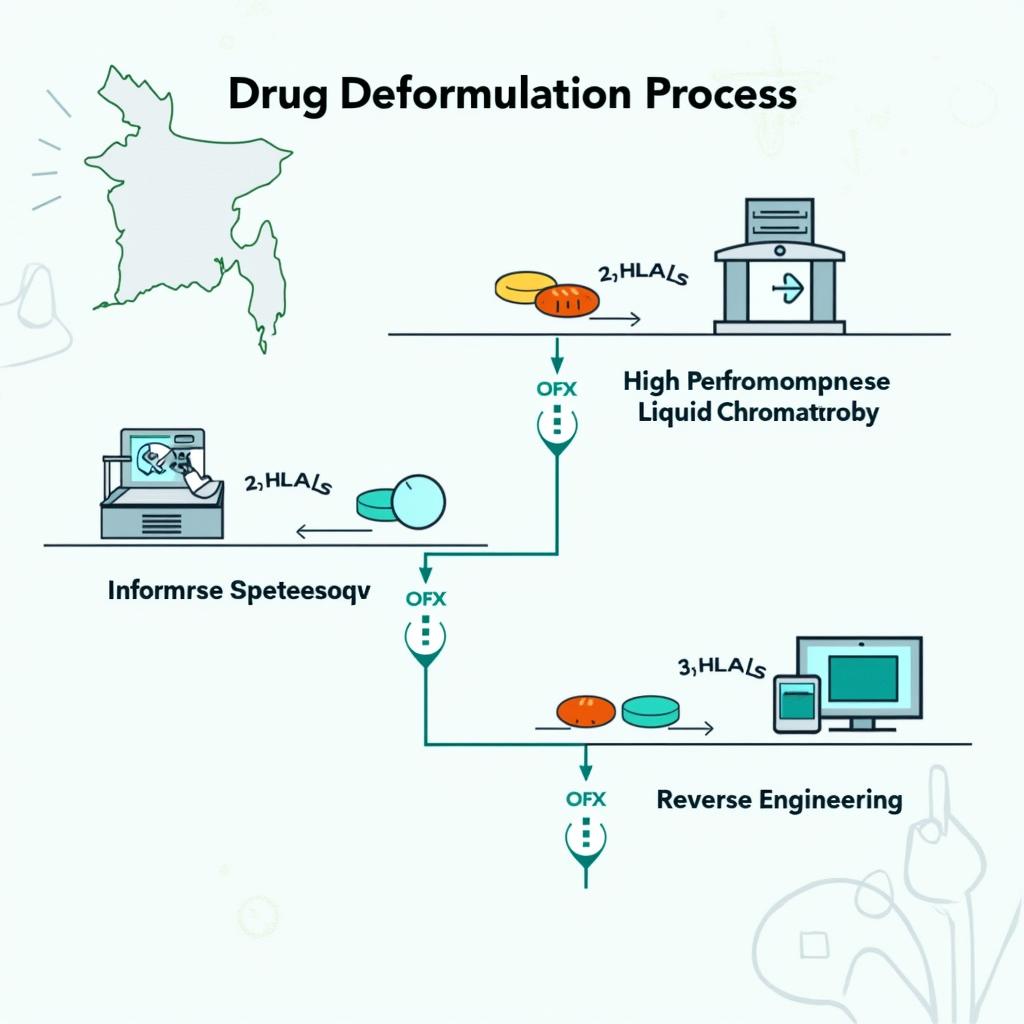Introduction
The pharmaceutical industry in Bangladesh is growing rapidly, fueled by local demand and export opportunities. However, for Bangladeshi pharma companies to stay competitive in both domestic and international markets, it’s essential to innovate effectively. Drug deformulation, a process of reverse engineering pharmaceutical products, has become a powerful tool in this endeavor, offering insights into product composition, enhancing R&D efforts, and expediting product development. This article explores how drug deformulation services can significantly aid Bangladeshi pharmaceutical companies in creating high-quality, competitive drugs for both local and global markets.
What is Drug Deformulation?
Drug deformulation, also known as reverse engineering, is the analytical process of breaking down an existing pharmaceutical product into its individual components. This includes identifying active pharmaceutical ingredients (APIs), excipients, and the proportions in which they’re combined. By understanding these components, pharmaceutical companies can better assess the safety, efficacy, and stability of the product, as well as create improved formulations.
For Bangladeshi pharmaceutical companies, deformulation is especially valuable, as it allows them to understand competitor products, develop generics, and enhance their own formulations while remaining compliant with stringent regulatory standards.
Why Drug Deformulation is Crucial for Bangladesh’s Pharma Industry
1. Facilitates Generic Drug Development
- With the expiration of many patents on popular drugs, there is a growing opportunity for Bangladeshi companies to create generic versions. Deformulation services allow pharma companies to quickly and efficiently understand the original formulation of a drug, making it possible to produce bioequivalent generics that perform similarly to branded products.
2. Supports Local R&D and Product Innovation
- Reverse engineering of pharmaceutical products enables Bangladeshi companies to boost their R&D capabilities. By gaining insight into the composition of established drugs, local companies can innovate new formulations that may be more effective or have fewer side effects, providing better treatment options to the Bangladeshi population.
3. Ensures Compliance with International Standards
- As Bangladeshi pharmaceuticals aim to expand internationally, they must meet regulatory standards set by organizations such as the FDA and EMA. Deformulation helps companies analyze and validate that their products match global quality benchmarks, ensuring safe and effective medications that meet regulatory requirements abroad.
Key Benefits of Drug Deformulation for Bangladeshi Pharma Companies
Quality Assurance and Product Consistency
- Deformulation services can help ensure that the quality and efficacy of the drug are consistent across batches, especially for complex or sensitive formulations. Quality consistency is critical for maintaining brand reputation and achieving customer trust in Bangladesh’s competitive market.
Reduction of R&D Costs
- By understanding competitor products at a detailed level, Bangladeshi pharmaceutical companies can avoid unnecessary R&D costs associated with trial and error. This efficiency enables a faster time-to-market for new drugs, which is essential for staying competitive in a fast-moving industry.
Risk Mitigation
- Deformulation can highlight potential issues within a drug’s composition, including stability concerns and interaction effects between ingredients. By identifying these early, companies can make informed adjustments to improve product safety and effectiveness, reducing the risk of costly recalls or market failures.
Deformulation Techniques Essential for Pharma Product Development
Pharmaceutical companies rely on a variety of advanced techniques for effective deformulation, including:

- Gas Chromatography (GC) and Mass Spectrometry (MS)
- Ideal for identifying volatile and semi-volatile compounds, GC-MS is commonly used to analyze APIs and excipients in drug formulations.
- High-Performance Liquid Chromatography (HPLC)
- This technique separates and quantifies each component, helping companies understand the concentration of each ingredient in a formulation.
- Fourier Transform Infrared Spectroscopy (FTIR)
- FTIR provides insight into molecular bonds and structures, offering a deeper understanding of the functional groups present within a compound.
- Thermogravimetric Analysis (TGA)
- TGA is useful for studying stability and degradation characteristics of drug compounds, which is critical for ensuring shelf-life and efficacy.
- Nuclear Magnetic Resonance (NMR) Spectroscopy
- This technique is often used to determine the molecular structure of the components, providing insights that are particularly valuable for complex formulations.
How Bangladeshi Pharma Companies Can Leverage Deformulation Services
To maximize the benefits of deformulation, Bangladeshi companies should look to partner with specialized deformulation service providers with expertise in advanced analytical techniques. Such providers can offer the technical know-how and equipment required to analyze complex formulations accurately. Collaborating with universities or investing in in-house deformulation labs can also enhance local capabilities, reducing dependency on foreign labs and expediting product development timelines.
Conclusion
Drug deformulation is transforming the landscape of pharmaceutical product development, especially in rapidly growing markets like Bangladesh. By utilizing deformulation services, Bangladeshi pharma companies can streamline their R&D processes, create high-quality generic drugs, and ensure compliance with international standards. This approach not only strengthens the local pharmaceutical industry but also positions Bangladeshi products as competitive and reliable options in global markets. As the demand for safe, effective, and affordable medications continues to rise, investing in drug deformulation capabilities will be a crucial step forward for Bangladesh’s pharmaceutical sector.

